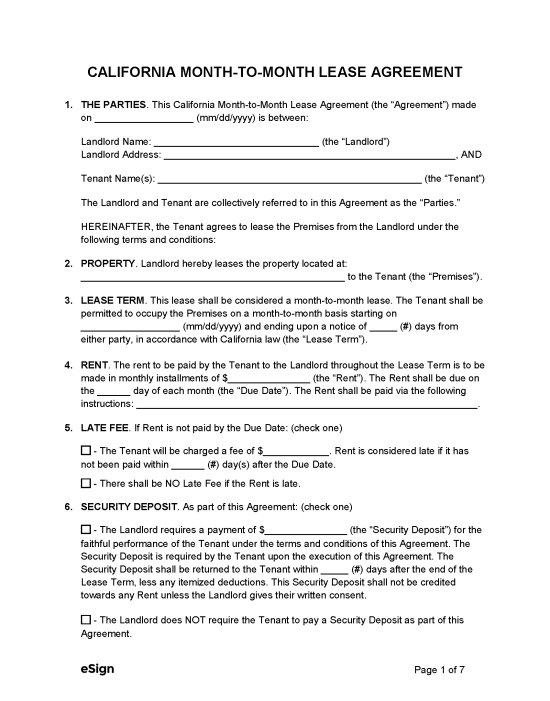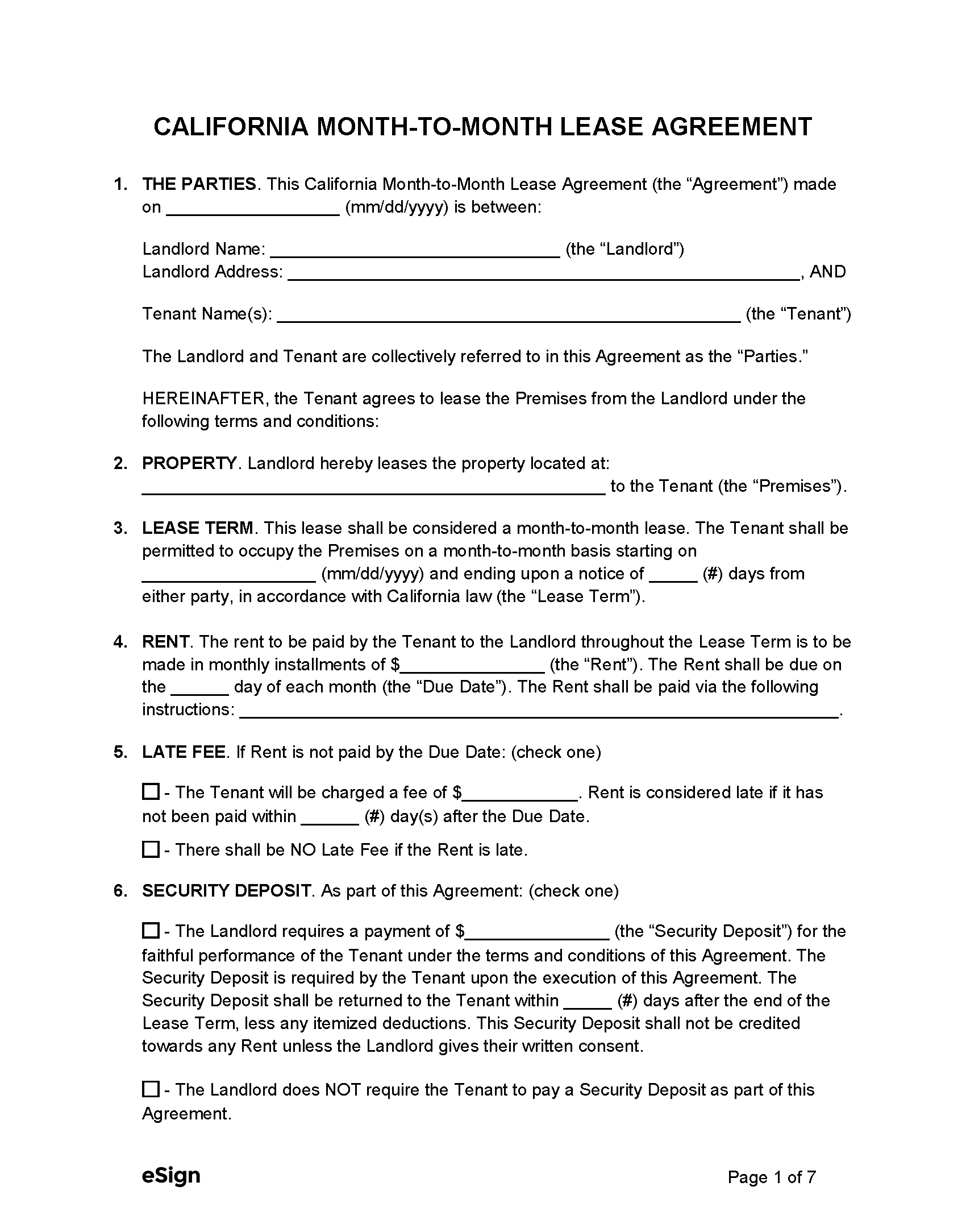California Month-to-Month Lease Agreement
Last updated November 3rd, 2025
The California month-to-month lease agreement is a short-term rental contract that enables a landlord to rent out residential property one month at a time. This agreement will state the tenant’s obligations, such as paying rent on time, taking care of utility bills, keeping the premises clean and in good repair, and adhering to any other rules established by the landlord.
Rental Application – Used by landlords to obtain background information and consent to a credit check from would-be tenants.
Month-to-Month Laws
- Termination Notice – A monthly tenancy may be terminated with a 30-day notice if the tenant has been there for less than a year. For longer tenancies, a 60-day notice is required.[1]
- Rent Increase Notice – For a 10% or less increase in rent, the landlord must give 30 days’ notice.[2] For increases in rent greater than 10%, 90 days’ notice is required.[3]
Required Disclosures (15)
- AB 1482 Just Cause Addendum (PDF) – If the property is exempt from the just cause and rent increase laws, landlords must relay this information to the tenant.[4]
- Bed Bug Disclosure (PDF) – Landlords are required to provide new tenants with information regarding preventing and managing bed bugs.[5]
- Death on Premises – Potential tenants must be informed of any deaths that occurred in the unit that the rental unit. This rule doesn’t apply if the death was three years before or if the person had HIV or died of complications relating to AIDS.[6]
- Demolition – If a landlord has applied for a permit to demolish a rental unit, prospective tenants must be made aware before signing a rental agreement.[7]
- Flood (PDF) – New tenants must be informed if the rental unit is located in a special flood hazard area.[8]
- Just Cause – Unless the real property is exempt, the landlord is required to provide the tenant with the language outlined in CIV Code § 1946.2(f)(3) regarding rent increase limits and just cause requirements.[9]
- Lead-Based Paint Disclosure (PDF) – This needs to be signed by all parties if the dwelling was built before 1978 to inform tenants of the presence of toxic paint.[10]
- Megan’s Law – A notice regarding how information on registered sex offenders in the area is available online must be included in every lease.[11]
- Methamphetamine Contamination – Prospective tenants must receive and acknowledge a notice of a remediation order if the property they hope to rent has been contaminated by methamphetamines.[12]
- Ordnance Locations – If the rental unit is located in a neighborhood that was once used as a federal or state ordnance location, then landlords must disclose this information to new tenants.[13]
- Pest Control – A notice from a pest control company should be given to new tenants if periodic pest control services are applied to the rental property.[14]
- Shared Utilities – If the property has a shared gas or electrical meter, new tenants must be informed of how the utility costs will be divided between tenants.[15]
- Smoking Policy (PDF) – Every lease agreement must state where smoking is prohibited and allowed in the rental unit.[16]
- Toxic Mold (PDF) – New tenants should be notified in writing if a landlord has cause to believe there is mold that exceeds the permissible limits in the dwelling.[17]
- Water Submeter Addendum (PDF) – If a landlord uses submeters to charge tenants separately for water, they must notify prospective tenants by giving them an estimate of the bill and explaining how the billing process will work.[18]

